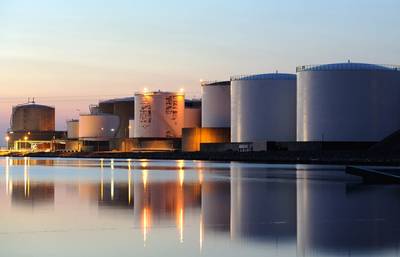Oil Falls as Market Stays Well Supplied
Signs of a deepening political crisis in Washington accelerated the decline in prices with investors becoming increasingly cautious following the latest reports of links between Russia and the team in the White House.
Brent crude fell $1.10 a barrel to a low of $51.11 but recovered ground to trade around $51.61, down 60 cents, by 1300 GMT. U.S. crude oil lost $1.02 to reach a low of $48.05 was last trading 55 cents a barrel lower at $48.52.
Traders said news that the campaign to elect President Donald Trump last year had at least 18 undisclosed contacts with Russians had unsettled investors.
"This is a general risk-off move," Ole Hansen, head of commodities strategy at Denmark's Saxo Bank, told Reuters Global Oil Forum. "Sentiment is fragile, so it does not take much to rock the boat even further."
Both crude oil benchmarks rose on Wednesday after news of a drawdown in U.S. crude inventories and a dip in U.S. output. The U.S. Energy Information Administration said inventories fell 1.8 million barrels in the week to May 12 to 520.8 million barrels.
But the U.S. crude drawdown was smaller than expected and the oil market remained extremely well supplied, analysts said.
A surplus of U.S. supply has led to large volumes of crude being exported from the United States to northern Asia, undermining the OPEC-led efforts to tighten the market.
The Organization of the Petroleum Exporting Countries and other producers including Russia pledged to cut output by almost 1.8 million barrels per day (bpd) in the first half of 2016, a deal likely to be extended until the end of March 2018.
Other producers have been quick to fill any supply gaps.
Shipping data in Thomson Reuters Eikon shows that U.S. crude exports to Asia have soared from a handful of tankers a quarter throughout 2015 and 2016 to 10 tankers in the first quarter of 2017 and that figure is expected to rise.
OPEC ministers meet in Vienna on May 25 to decide production policy for the next six months and are expected to prolong their agreement to limit production, perhaps by up to nine months.
UBS oil analyst Giovanni Staunovo said he saw a 60 percent probability of OPEC extending output cuts. That should help tighten the oil market and push up prices as demand rises gradually this year, he said.













